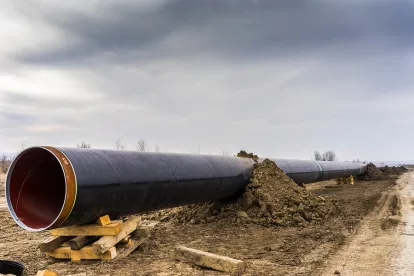On April 11, 2022, the Fourth District Court of Appeals issued a significant decision in Zimmerview Dairy Farms, LLC v. Protégé Energy III LLC establishing that a general release of damages signed in connection with a pad site surface use agreement did not release the oil and gas company from its ongoing obligations to remediate and restore damage to a landowner’s property.
In the Zimmerview case, Plaintiff Zimmerview Dairy Farms (“ZDF”) signed a surface use agreement with Defendant Protégé Energy III LLC (“Protégé”) permitting Protégé to construct and operate a pad-site for Utica Shale wells on a portion of the ZDF farm. The agreement consisted of three documents: a recorded surface use agreement (favorable to Protégé); a confidential supplemental agreement (with terms favorable to ZDF); and a damage release under which ZDF released Protégé from the anticipated damages already paid for by Protégé. This three-document structure is typical, especially for pipelines easements, and one which many oil and gas companies insist on. Often, the damage release is explained by landmen as an unimportant formality and that the company is still going to fix the land as required under the unrecorded agreement. However, what a landman says, what an agreement says and what a company does can differ dramatically.
In Zimmerview, Protégé proceeded to construct and operate its pad-site without adequately remediating, restoring and reseeding the areas disturbed during construction, including the slopes of the pad-site. Over several years, Protégé’s failure to remediate resulted in significant topsoil damage, invasive weed infestations and ongoing erosion, which rendered large portions of the ZDF farm unusable. Protégé refused to pay or fix the ZDF farm, claiming that the damage release signed by ZDF released Protégé from any obligation to remediate or pay for damages caused to the ZDF farm. When ZDF filed suit and won at trial, Protégé appealed.
On appeal, Protégé once again argued that ZDF had released Protégé from all damages resulting from construction and operation of the pad-site including damages from not remediating the ZDF farm. Despite the broad language of the release, however, the Court of Appeals rejected Protégé’s argument on the basis that the damage release, signed when the surface use agreement was executed, could not have been intended to release Protégé from damages that resulted from the ongoing obligations and requirements Protégé had just agreed to under the surface use agreement. Accordingly, the Fourth District affirmed the trial court judgment (and $800,000 verdict for damages) against Protégé. Given the common use (and abuse) of similar damage releases by both operators and pipeline companies, this decision is a welcome addition to Ohio caselaw and should assist (and hopefully encourage) Ohio landowners to insist on producers and pipeline companies meeting their construction and remediation obligations.



 />i
/>i

